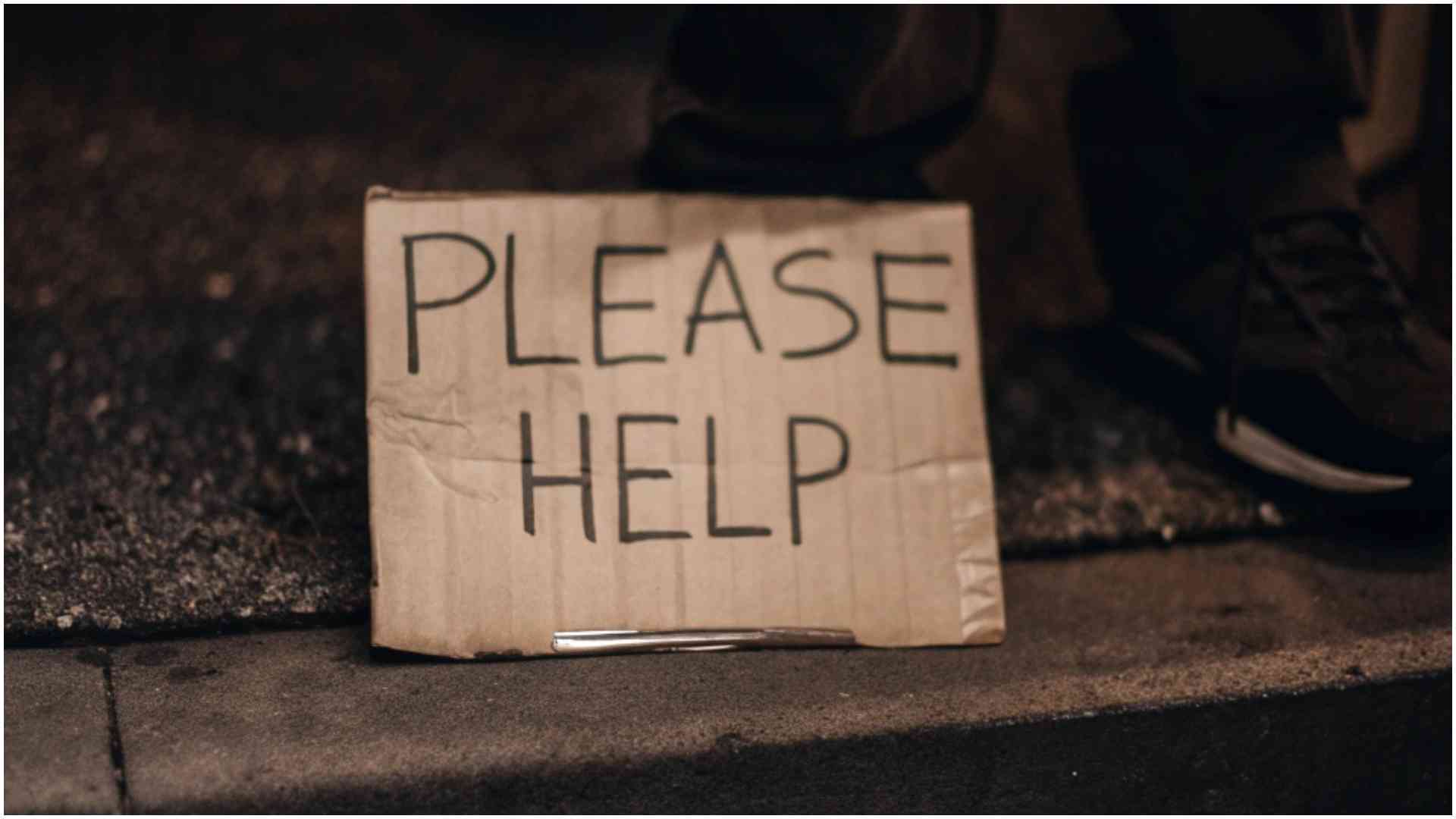Entitled Beggars? Rise of celebrities turning fans into ATMs

In recent years, a trend has emerged among Kenyan celebrities of asking for financial assistance from fans and followers, often for personal needs rather than artistic or charitable causes. This is made worse by some appearing to expect that such support is automatic.
This behavior has sparked widespread discussion and criticism, shedding light on a perceived culture of begging within Kenya’s entertainment industry.
In today’s digital age, fame is no longer reserved for the polished stars of traditional media.
Platforms like TikTok, Instagram, YouTube and X have democratized celebrityhood, thrusting ordinary Kenyans into the spotlight overnight with a single viral moment and little support system to handle the overnight fame.
From quirky dance videos to humorous skits or even a candid photo that captures the Internet’s imagination, the path to stardom is shorter than ever.
However, many of these new-age celebrities, unfamiliar with the workings of the industry, focus too much on maintaining a social media image of success.
More often than not, they end up living beyond their means, relying on loans, credit, and sponsorships to fund their extravagant lifestyles.
While their social media feeds and public appearances may showcase luxury, the reality is often far from the picture-perfect life they project. façade can be dangerous, both for their financial health and personal well-being, as they risk falling into debt while struggling to keep up with the demands of fame.
Unlike traditional stars who have built resilience under seasoned managers, today’s viral sensations are often navigating fame alone.
“There’s no one to guide them through the highs and lows,” says entertainment analyst Kevin Otieno.
“They’re left to figure it out, and many don’t.”
But as quickly as these overnight celebrities rise, many stumble, unprepared for the financial realities of their fleeting fame—and increasingly, they’re turning to online begging, much to the frustration of Kenyans who feel burdened by their entitlement.
For every viral success story, there’s a cautionary tale of financial ruin. The influx of gifts, brand deals, and cash that accompanies sudden fame can be overwhelming.
Stay informed. Subscribe to our newsletter
Githeri Man, for example, received a Head of State Commendation, Sh100,000 from then-President Uhuru Kenyatta, and a slew of endorsements after his viral moment.
Yet, within a year, he was back in the headlines—not for triumph, but for collapsing on a trolley in Kayole, a victim of alcohol addiction exacerbated by his inability to cope with the spotlight.
Similarly, Sammy Githae and Virginia Njeri, the street couple whose Valentine’s Day makeover went viral in 2018, enjoyed flights to Diani and lavish treats—only to return to homelessness months later, their brief riches squandered.
Esther Njeri, known as Cucu wa Chira or Shosho wa Chira on TikTok, is the grandmother of the late Kenyan TikTok star Brian Chira, who tragically died in a hit-and-run accident in March 2024.
Since his passing, she became a prominent figure online, often sparking conversation with her requests for assistance from the public.
Earlier this year, she made headlines when she asked Kenyans to “sit down and decide” how she should live, expressing dissatisfaction with the house built for her by TikTokers after Chira’s death.
This plea came after fans had raised over Sh8 million in 2024 to honor Chira’s dream of providing her with a comfortable home, a project completed in August of that year.
When the money dries up, many of these stars don’t fade quietly. They turn to the very platforms that made them famous to beg for help. Social media posts pleading for rent, car payments, or personal luxuries have become disturbingly common.
A while ago, content creator Gwethe TV reached out to Kenyans, asking for assistance amidst claims that he was struggling to make ends meet. His comedic expressions and unique content style earned him a loyal fanbase, leading to brand collaborations and opportunities in the entertainment industry.
At the height of his success, he even launched a line of branded merchandise, which he sold to his supporters. However, he later expressed frustration, lamenting that people only show support after someone has passed away.
He decried the hypocrisy, saying, “Sai naumia nko na wale marafiki nkikufa wanataka kuchanga one million. This guy was a good guy, I know very well he was a hard-working man.”
Similarly, earlier this month, TikToker Nyako, despite being known for her extravagant lifestyle in Germany, also pleaded for financial help. In a viral clip, Nyako appeared dejected, her voice heavy with emotion. “Ninaomba mnisaidie tu kulipa rent,” she pleaded.
Even filmmaker Abel Mutua has called out the “alarming” entitlement, recounting how a security guard grew angry when denied a handout.
“Is it just me, or have we just turned into a begging nation? The rate at which tunatozwa za macho is alarming. I have no problem with taxation; what I have a problem with is entitlement,” he said.
This trend isn’t limited to faded stars. Even those still basking in the glow of relevance have joined the fray, blurring the line between genuine need and opportunistic grift.
The result? A culture of online begging that’s leaving Kenyans exasperated.
Kenyans are known for their generosity, often giving without too much thought. But the incessant appeals from overnight celebrities are testing that goodwill. “We have our own problems,” one X user vented in response to a celebrity’s plea for rent money.
“Why should I fund your lifestyle when I’m struggling to pay my bills?” Another netizen echoed a growing sentiment: “These clowns think fame entitles them to our money. Help a kid with school fees instead.”
The backlash reflects a deeper frustration with a perceived lack of accountability. While fans once rallied behind stars like Omosh, the repetition of such requests—often paired with displays of past extravagance—has bred cynicism. “Give once, and they’re grateful; give twice, and they expect it,” a Reddit user lamented in a viral thread about Nairobi’s begging culture. For many Kenyans, the entitlement feels like a betrayal of the hard work and resilience they value.
The rise of overnight celebrities showcases the power of digital platforms to transform lives, but it also exposes a need for structure.
Psychologists point to a lack of preparation as the root cause. “The brain needs time to adjust to such drastic changes,” explains Nairobi-based therapist Dr. Jane Okello.
“Without a mindset shift or mentorship, these overnight celebrities struggle to trust that the fame will last, let alone manage the money it brings.”
The absence of financial literacy compounds the issue, turning windfalls into fleeting thrills rather than sustainable wealth.
“When you’ve never had money and suddenly you’re flush, the temptation to indulge is overwhelming,” says financial advisor Mary Wanjiku.
“Many turn to substances as part of the party lifestyle fame affords, not realizing it’s a trap.”
Experts suggest mentorship programs to guide viral stars through fame’s pitfalls, from financial planning to mental health support. Brands and fans, too, could shift focus from showering gifts to fostering sustainable opportunities like funding creative projects rather than personal expenses.
As Kenya’s entertainment landscape evolves, the challenge lies in balancing the thrill of instant fame with the discipline to sustain it.
Until then, the cycle of viral stardom, financial collapse, and online begging will persist leaving both celebrities and their audiences questioning the true cost of the limelight.








